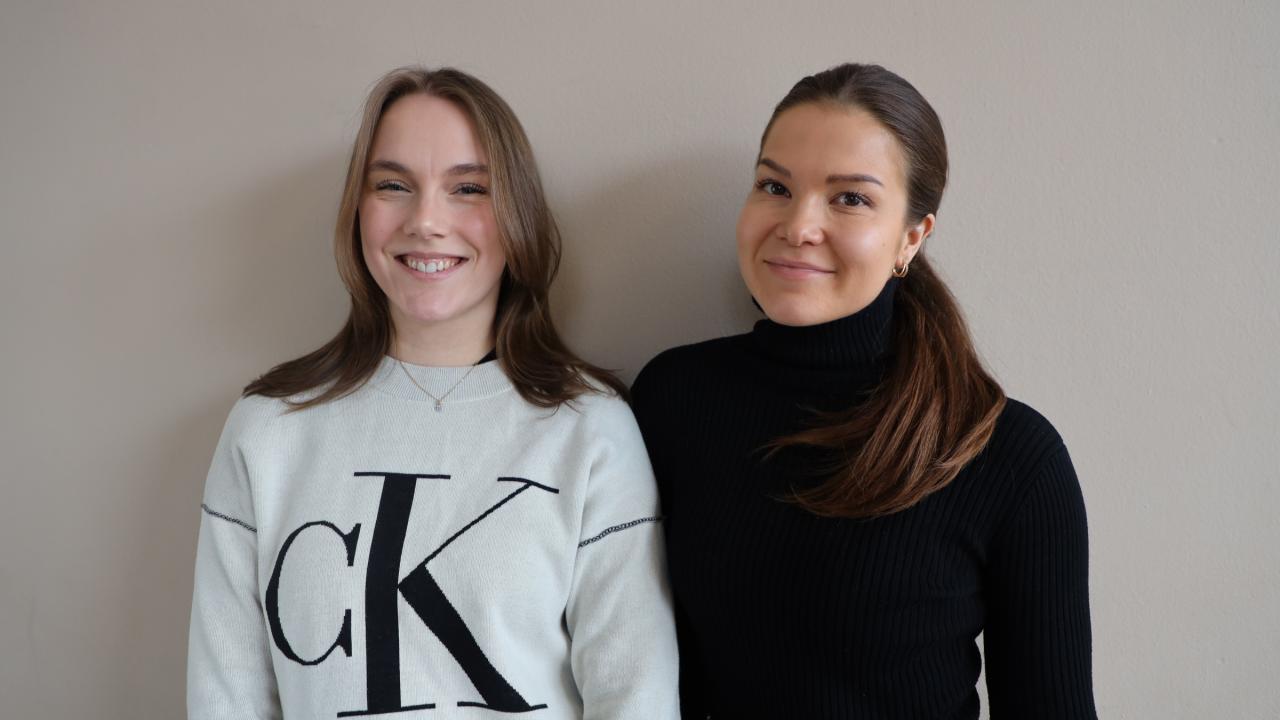Course project helped in Unicef Finland report on companies' impact on children's rights

Less than 25 percent of Finnish companies listed on the stock exchange highlight or advocate children's rights in all their activities, according to the current Unicef report Child Lens on ESG: A study of Nasdaq Helsinki Companies, which includes contributions from Hanken students Harriet Huotari and Nea Olsson.
Olsson and Huotari collaborated with Unicef Finland on children’s rights issues in the corporate world during Hanken's project course Corporate Social Responsibility and Humanitarian Logistics. The course was developed by postdoctoral researcher Nikodemus Solitander and Professor Martin Fougère, both of whom have conducted research in responsible management education, and particularly service-learning as a teaching method.
“We have had many fantastic projects over the years with organizations that take sustainability extremely seriously. The course is an excellent example of the kind of 'signature teaching methods' which are part of Hanken's new strategy,” says Solitander.
Service learning (SL), used in the course, is a form of experiential learning. SL focuses on reciprocity – the relation of both ‘receiving’ and ‘giving’, between students and organizations, both parties teach, and both learn.
“SL is excellent for courses like this, as it is based on ethical concepts such as justice, responsibility, and reciprocity, as it a priori assumes that the needs being served are societal. In the course, we endeavored to expand the SL concept from a collaboration between students and organizations, to include other stakeholders, and society at large,” says Solitander.
A unique project
For Unicef Finland, the benchmarking study where Olsson and Huotari together with two fellow students helped refine the methodology and gather data from Finnish companies, was something entirely new. The field has not seen much research previously, either in Finland or globally.
“It was cool that the staff at Unicef actually asked us how we thought the project should be done. We were acting as experts, and had to build the project from scratch, as there was no clear framework for the work. We received great feedback at the end of the course,” says Olsson.
Even after the project course had ended, Huotari continued working on the project, helping Unicef staff also in the latter stages of the study.
“I collected and analyzed data, wrote some of the report, had discussions with the companies together with Unicef staff, and helped in figuring out how to present the results. It was interesting to experience the whole process, from when we started during the course, to the results now, a year later, which have turned out somewhat differently to what we first anticipated,” she says.
“Children are everyone's business”
The report shows that companies do not yet understand their impacts on children. The purpose of the project is to show that children’s rights issues are about more than just child labour, including family-friendly working conditions.
“The project taught me that not a single company can claim that children's rights issues do not concern its activities at all. Even if children are not the company's intended customers, the marketing or product may indirectly affect them. Children are very vulnerable,” says Olsson.
How should companies get better at respecting children's rights? According to Huotari and Olsson, the first thing is to create ways of identifying and measuring how children's rights issues are addressed in companies' operations.
“We found that many companies do not even audit how their operations are impacting human rights. It is important to start there and integrate issues around children's rights in the audit. That is the first step. Without that kind of understanding, it is hard to develop activities that promote children's rights at all levels,” explains Huotari.
Unicef Finland recommends collaboration, open dialogue, communication, and transparency on children's rights issues.
“During discussions with the companies, it became clear that they do not report on all their activities that promote children's rights. Open communication can have an impact on customers, stakeholders, and other businesses.
The financial sector also plays a role in children's rights issues.
“It is important that investors contribute to the engagement and dialogue on the subject with the companies in their portfolios and other stakeholders,” says Huotari.
Huotari and Olsson also urge companies to treat children as key stakeholders.
“Children should always be considered from a long-term perspective because they are the workforce, managers and consumers of the future,” says Olsson.
Companies just starting to work on children's rights issues
Harriet Huotari and Nea Olsson believe that Finland was a good starting point for the pilot study, because certain fundamental values are well-established in Finnish society, and Finland has a good legal framework supporting human rights.
“The report shows that Finnish companies have a strong commitment to human rights, and are therefore in a good position to lead the way in expanding work around children’s rights issues by integrating it into their strategies,” says Olsson.
"The companies were very eager to learn how to approach children's rights better in the future. I saw progress being made already while we were conducting the study,” Huotari adds.
Text and photo: Sofia Grünwald


